-
 Robert Riger, Racehorse: Morning Work – Breezing Out a Three-Year Old, c. 1957. © Estate of Robert Riger
Robert Riger, Racehorse: Morning Work – Breezing Out a Three-Year Old, c. 1957. © Estate of Robert Riger -
 Dennis Stock, Ella Fitzgerald, 1958. © Magnum Photos, Inc. and Dennis Stock
Dennis Stock, Ella Fitzgerald, 1958. © Magnum Photos, Inc. and Dennis Stock -
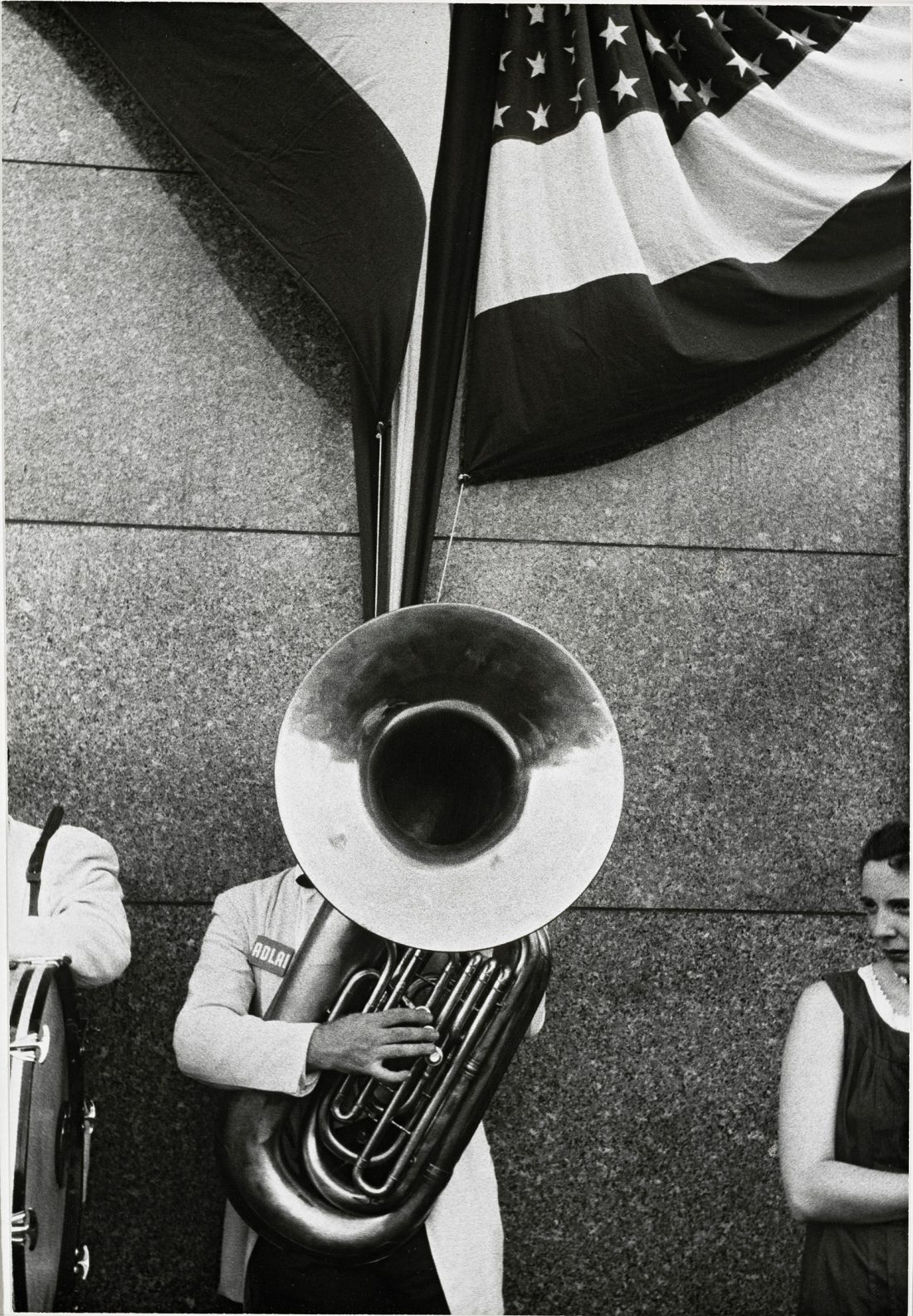 Robert Frank, Political Rally, Chicago, 1956. © Robert Frank, from The Americans. Courtesy of Pace/MacGill Gallery, New York
Robert Frank, Political Rally, Chicago, 1956. © Robert Frank, from The Americans. Courtesy of Pace/MacGill Gallery, New York -
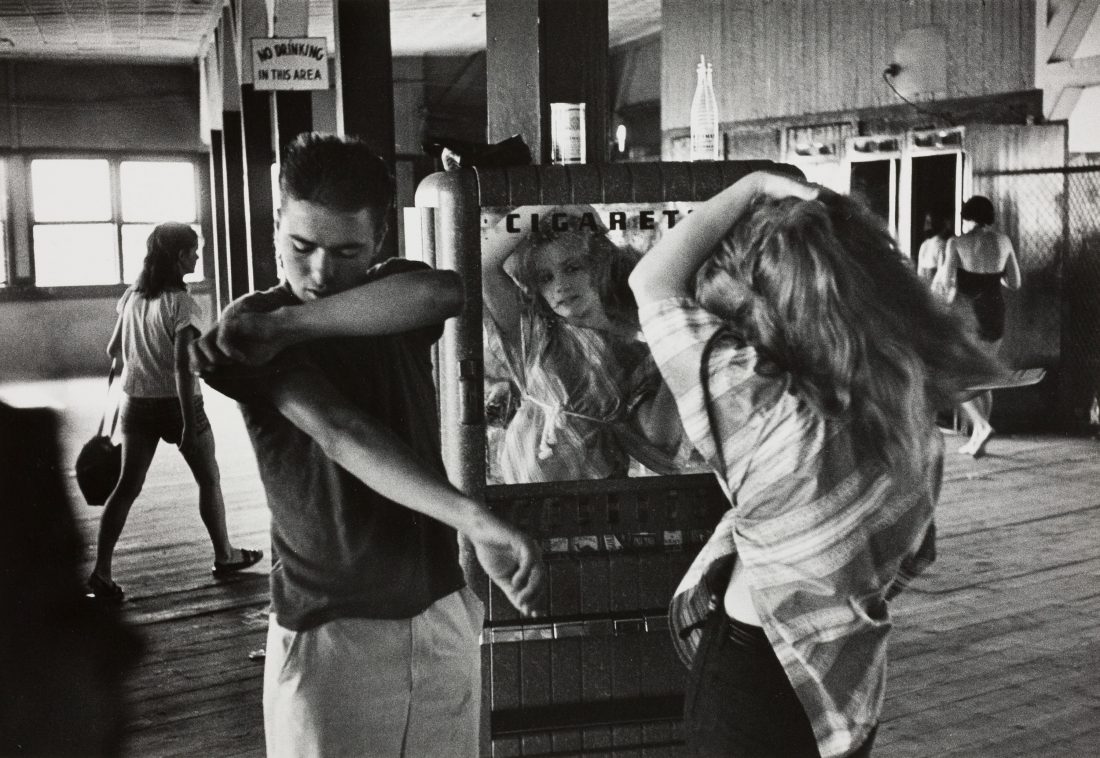 Bruce Davidson, Boy and Girl at Cigarette Vending Machine, 1959. © Magnum Photos, Inc. and Bruce Davidson
Bruce Davidson, Boy and Girl at Cigarette Vending Machine, 1959. © Magnum Photos, Inc. and Bruce Davidson -
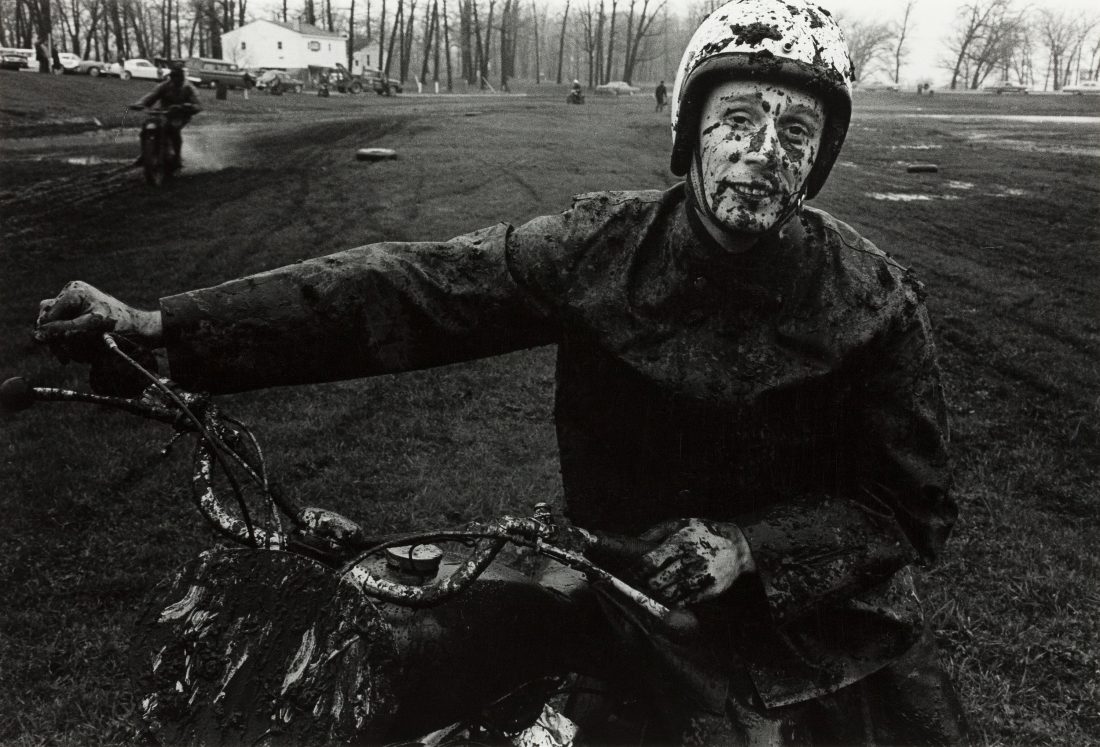 Danny Lyon, Schererville, Indiana, 1965. © Danny Lyon, Courtesy Gavin Brown Enterprises
Danny Lyon, Schererville, Indiana, 1965. © Danny Lyon, Courtesy Gavin Brown Enterprises -
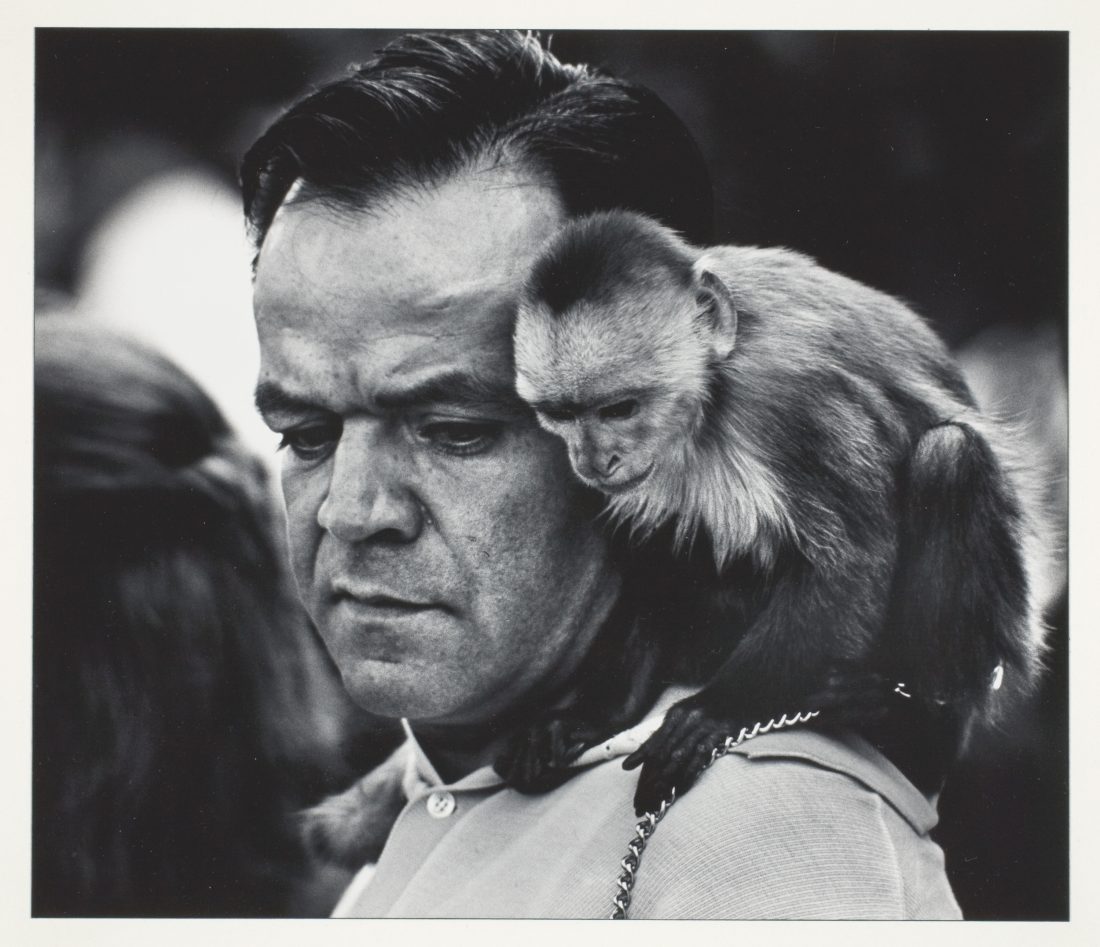 Dave Heath, Untitled, 1963. © Estate of Dave Heath
Dave Heath, Untitled, 1963. © Estate of Dave Heath -
 Duane Stephen Michals, Restaurant Booth, 1963. © Duane Stephen Michals
Duane Stephen Michals, Restaurant Booth, 1963. © Duane Stephen Michals -
 Algimantas Kezys, Simon Fryser University, Vancouver, Canada, 1966. © Estate of Algimantas Kezys
Algimantas Kezys, Simon Fryser University, Vancouver, Canada, 1966. © Estate of Algimantas Kezys -
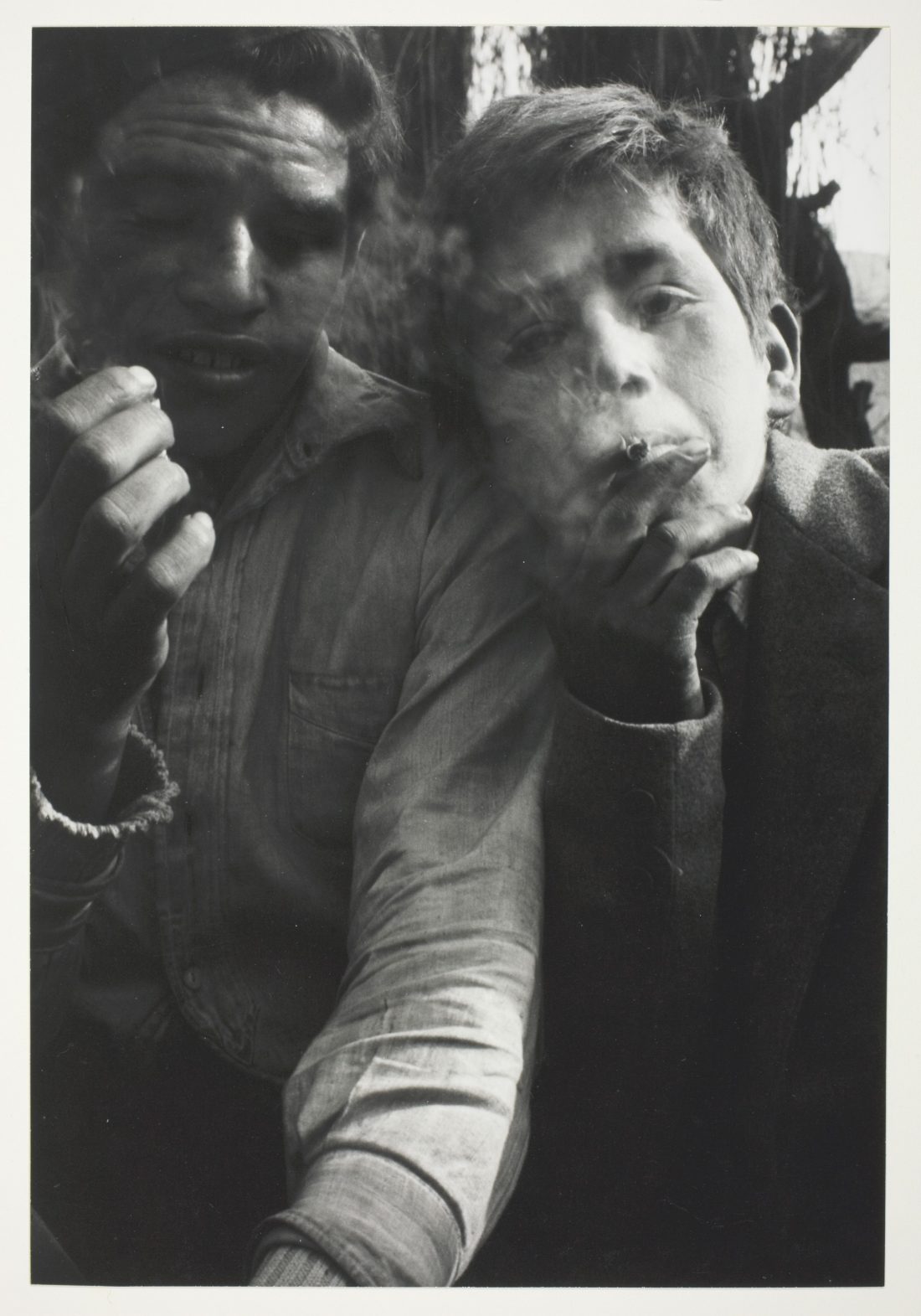 Sergio Larraín, Vagabond Children, 1957, © Magnum Photos, Inc. and Sergio Larráin
Sergio Larraín, Vagabond Children, 1957, © Magnum Photos, Inc. and Sergio Larráin -
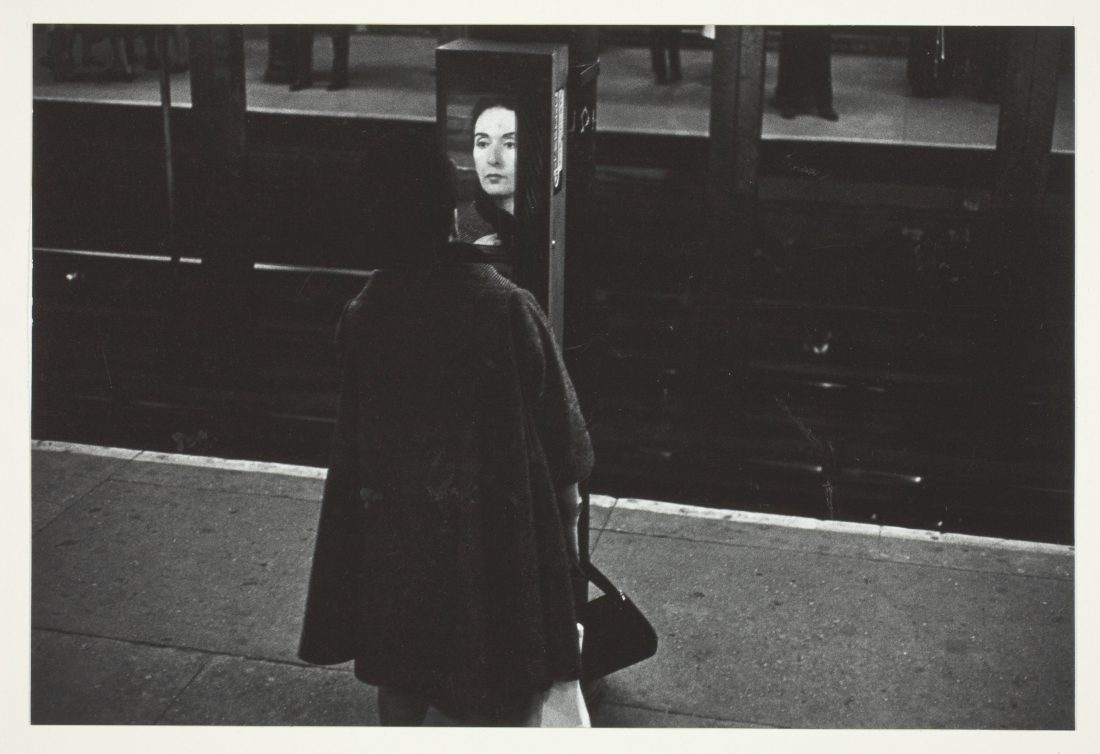 Rudolph Janu, Untitled, c. 1960. © Estate of Rudolph Janu
Rudolph Janu, Untitled, c. 1960. © Estate of Rudolph Janu
Emerging Artists
Through exhibitions, acquisitions, and his own writing, Hugh Edwards offered enthusiastic support to photographers in the early stages of their careers. More than one third of the seventy-five exhibitions he curated at the Art Institute of Chicago were given to such artists, some without even a previous exhibition to their credit. In a 1963 article Edwards explained his ambitions: “In the beginning I had wanted to present one-man showings by people who had not had them elsewhere. This presented no difficulty; I was both astonished and disappointed to find almost none of those I had in mind had been given an exhibition anywhere.”[1] The public proved receptive to Edwards’s ideas, as six of the most heavily attended exhibitions during his first three years as curator of photography were dedicated to emerging photographers: in descending order, Robert Riger (1962), Robert Frank (1961), Dave Heath (1963), Rudolph Janu (1962), Dennis Stock (1963), and Ray Metzker (1959).[2]
In addition to his exhibition program, approximately one third of the more than three thousand photographs Edwards acquired for the museum’s permanent collection were by emerging photographers. The works took on an important role in the Print Study Room, as he expressed to Dave Heath: “I feel it is just as important for people to be able to look at prints in the print study room as to show exhibitions, maybe more. The number of visitors to the print room and the results of their seeing the photographs intimately and undisturbed, have brought stimulating results.”[3]
Edwards searched for new talent in books, magazines, local cultural centers, and even in university and high school competitions. After acting as a juror for a 1965 national high school competition, the Scholastic Awards, he demonstrated his open-minded receptiveness by writing in a note to the organizer that “seeing the photographs gave me more hope for what to expect in the future.”[4]
The curator gave special attention to artists whom he saw as continuing the tradition of American photographic realism begun by Lewis Hine and Walker Evans. He gave Robert Frank—one of the most important photographers of the twentieth century—his first museum exhibition and crucial early support in 1961. Countering widespread criticism of Frank’s book The Americans, Edwards noted its “freshness and newness,”[5] foreseeing Frank’s place as a leader of “a neo-realist movement.”[6] Edwards embraced color photography when it was largely the province of the commercial world, exhibiting the color sports photographs of Robert Riger (included in an unprecedented three exhibitions), the Polaroid portraits of Marie Cosindas, and color works by Howard Dearstyne, Robert Earl Wilson, and others. He took chances on lesser-known artists like George Gardner, Rudolph Janu, Simpson Kalisher, Aligmantas Kezys, Enrico Sarsini, and Keith Smith, acquiring early works or mounting exhibitions.
Edwards also gave great encouragement to local photographers. Joel Snyder and Danny Lyon, both students at University of Chicago in the early 1960s, visited the Print Study Room regularly to view works with the curator and learn about the history of photography. Edwards became a mentor to the young Lyon, not only organizing two exhibitions of his work— the only artist besides Riger to receive more than one show—but even lending him a camera to photograph in Chicago’s Uptown neighborhood. He also paid close attention to the students of Harry Callahan and Aaron Siskind at the Institute of Design in the late 1950s and early 1960s. He exhibited and acquired the work of Yasuhiro Ishimoto, Joseph Jachna, Kenneth Josephson, Ray K. Metzker, Joseph Sterling, and Charles Swedlund, many of whom were only just completing their student years.
This interest in championing young artists continued apace after Edwards’s retirement. He became a close friend and supporter of the Cuban duo José López and Luis Medina, who took a class that Edwards gave on the history of photography at the School of the Art Institute of Chicago. Edwards bequeathed works from his own collection—including photographs by López and Medina as well as Lyon, Frank, Keith Smith, and others—to the Art Institute.
Frances Dorenbaum, Dangler Curatorial Intern, Department of Photography
[1] Edwards, “Some Experiences with Photography,” Contemporary Photographer 4, 4 (Fall 1963), p. 7.
[2] Ibid.
[3] Edwards to Dave Heath, Aug. 29, 1963, Institutional Archives, Art Institute of Chicago.
[4] Edwards to Harold Bibby, Apr. 17, 1965, Institutional Archives, Art Institute of Chicago.
[5] Edwards to Robert Frank, May 23, 1960, Hugh Edwards Archive, collection of David and Leslie Travis, copy on file in the Photography Department, Art Institute of Chicago.
[6] Edwards to John Reed, Jan. 2, 1963, Institutional Archives, Art Institute of Chicago.
Citation: Frances Dorenbaum, “Emerging Artists,” in Hugh Edwards at the Art Institute of Chicago, 1959–1970 (Art Institute of Chicago, 2017), http://media.artic.edu/edwards/.
Selected Exhibitions
Photographs by Robert Frank (1961)
Photographs by Dennis Stock (1963)
A Dialogue with Solitude: Photographs by Dave Heath (1963)
Photographs by Enrico Sarsini (1963)
Photographs by Bruce Davidson (1965)
Photographs by Father Algimantas Kezys, S. J. (1965)
Photographs by Sergio Larraín (1965)
Selected Writings
Foreword to Dave Heath: A Dialogue with Solitude (Community Press, 1965), n.p.
“Postscript,” Photographs: Algimantas Kezys, S. J. (Loyola University Press, 1966), n.p.
Introduction to Enrico Natali: New American People (Morgan & Morgan, Inc., 1972), n.p.
Related Media